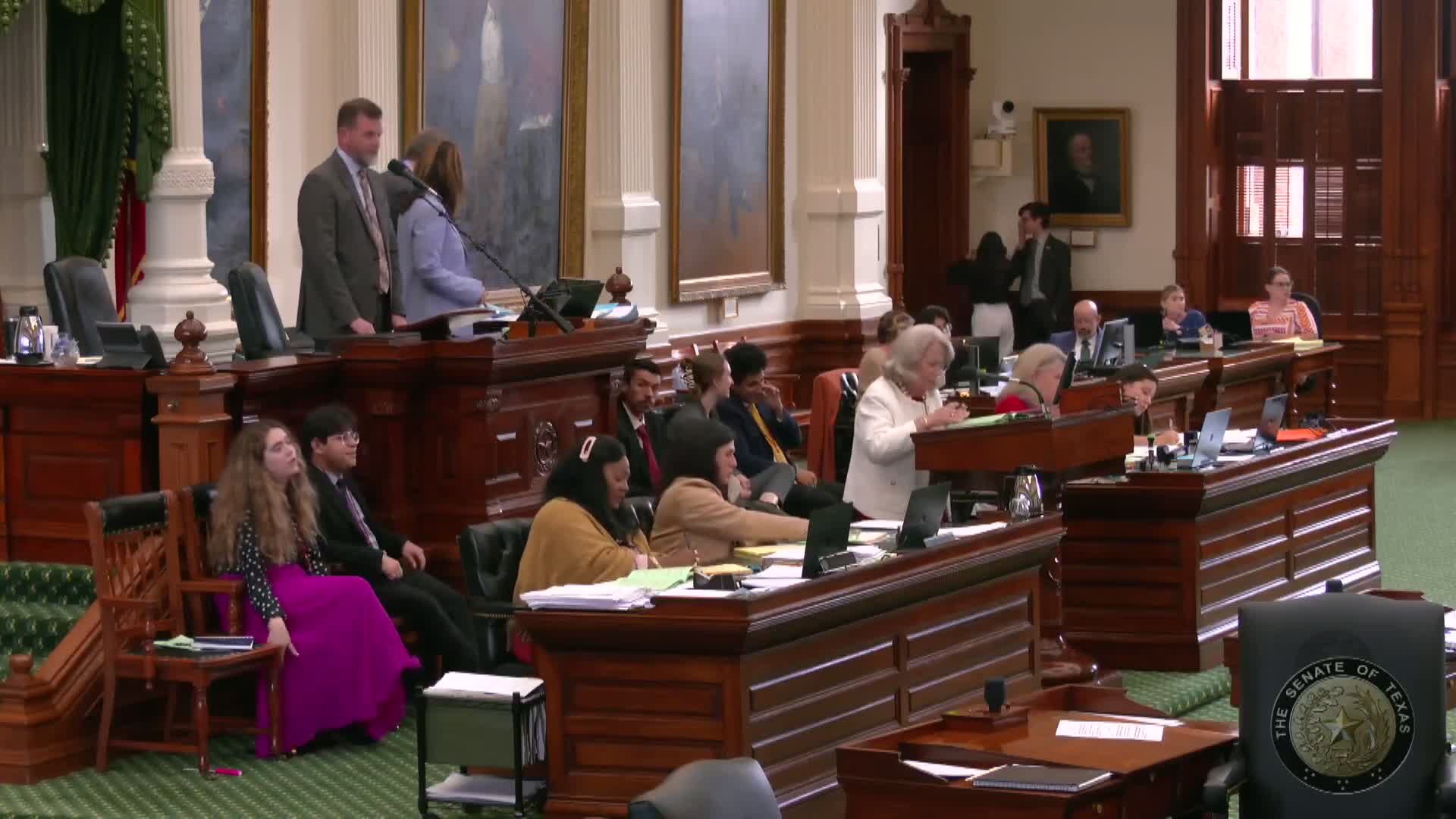Article not found
This article is no longer available. But don't worry—we've gathered other articles that discuss the same topic.
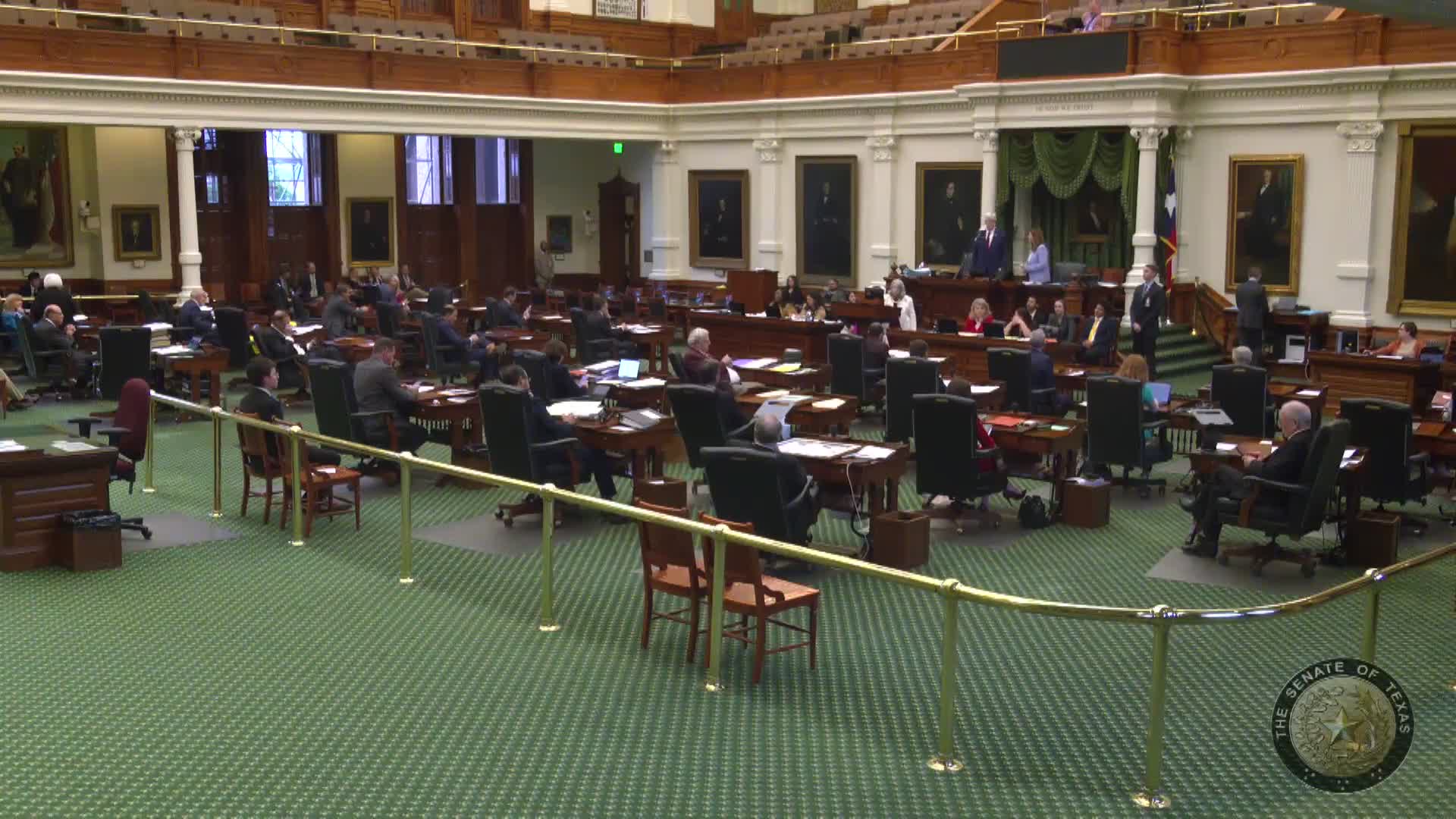
Senate concurs with House on retail‑theft sentencing thresholds; life prison and largest fines removed
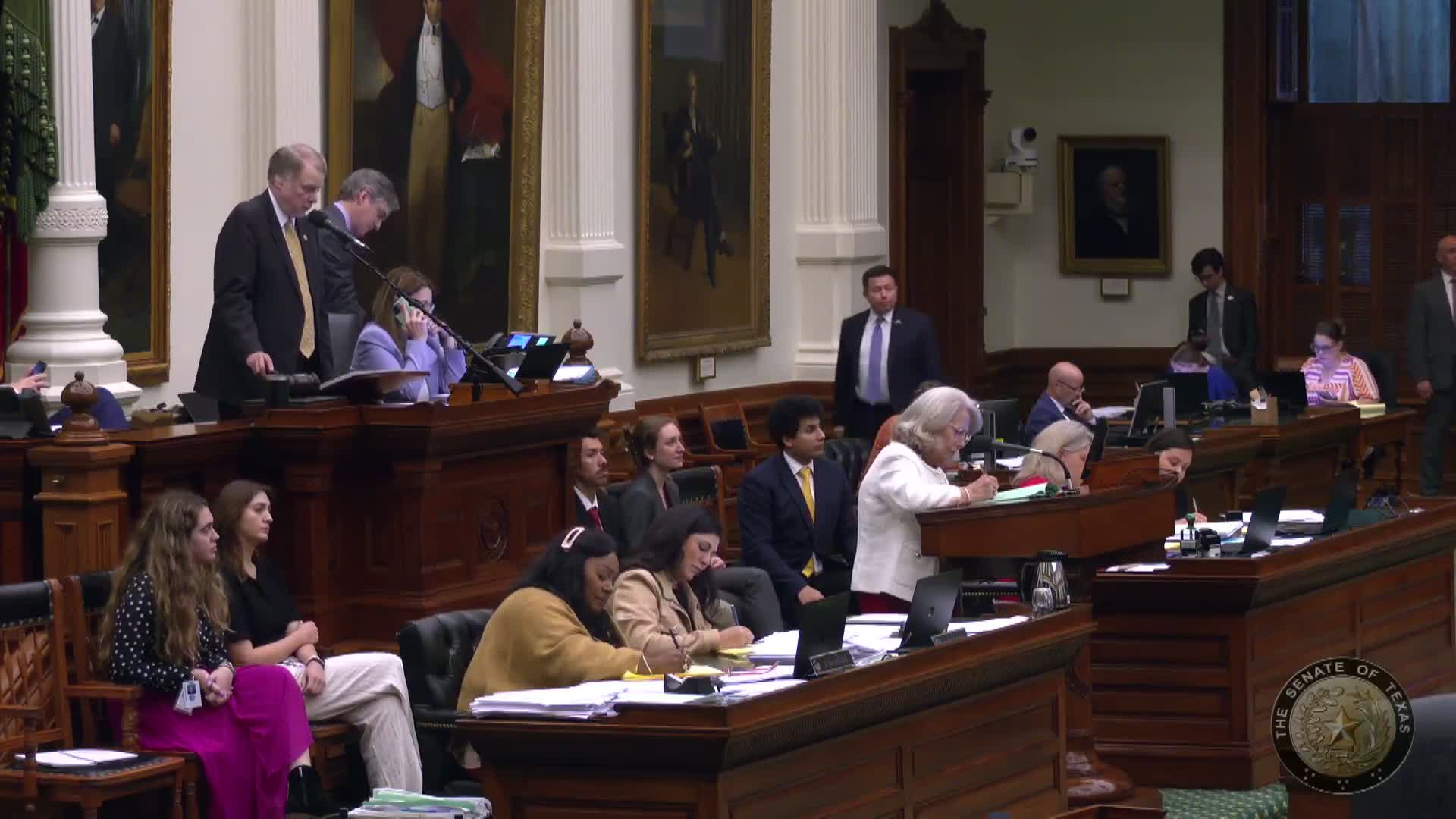
Senate adopts conference report refining landowners compensation program, adds up to $10,000 for crop and livestock losses
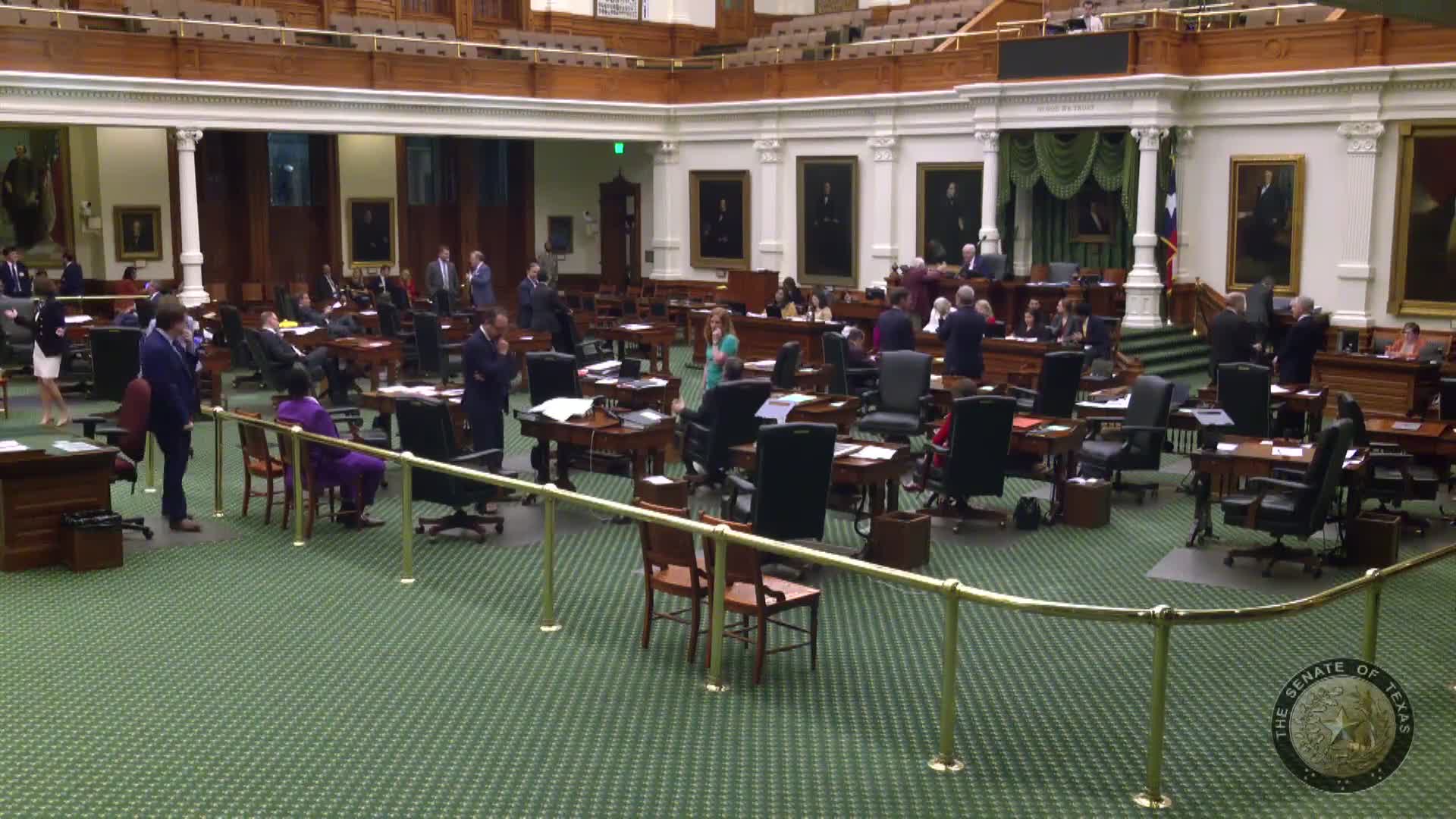
Senate restores full award amount for Texas Armed Services Scholarship in conference report
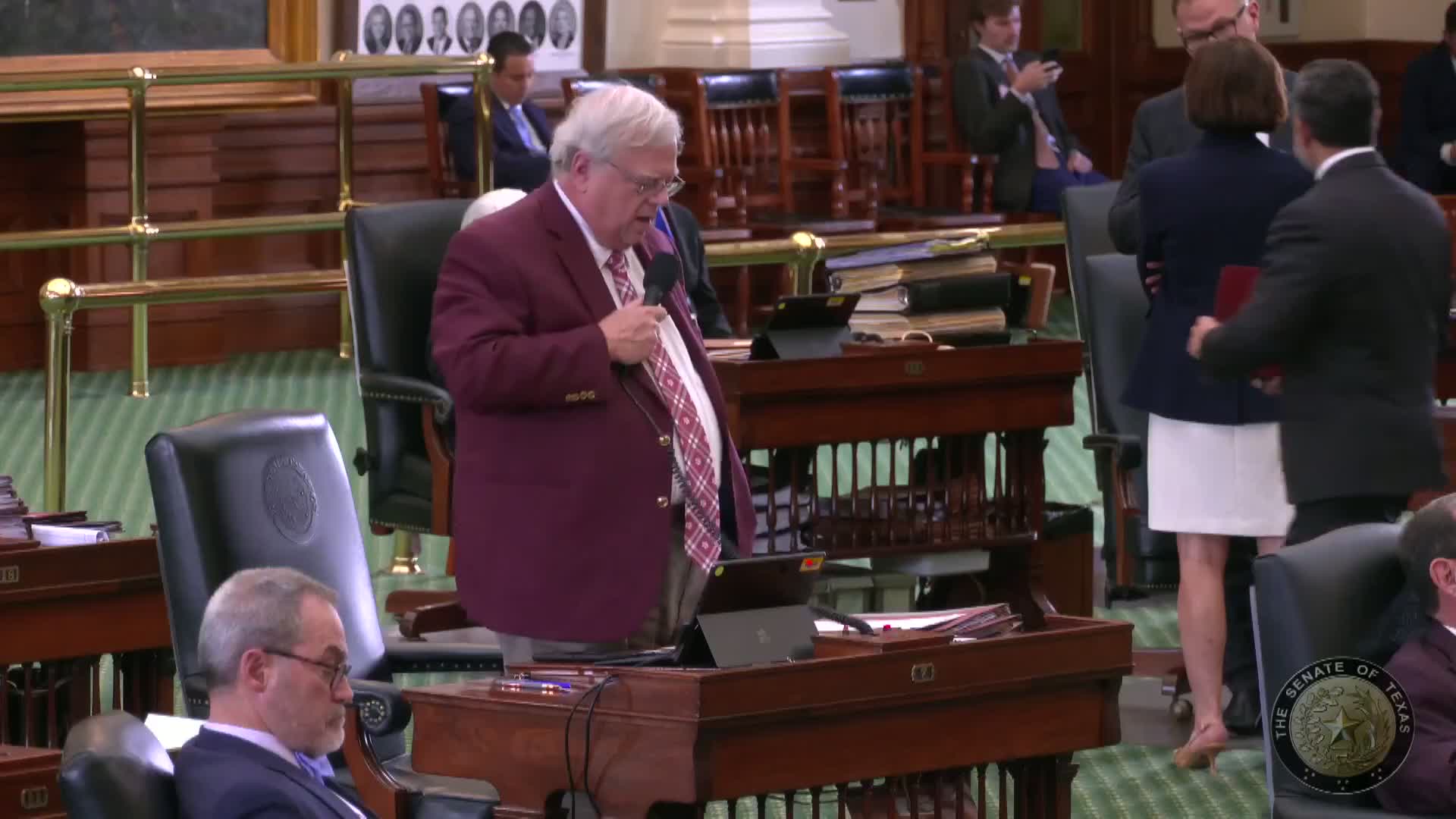
Senate adopts conference report replacing proposed two‑hour TRO notice with one‑hour compromise
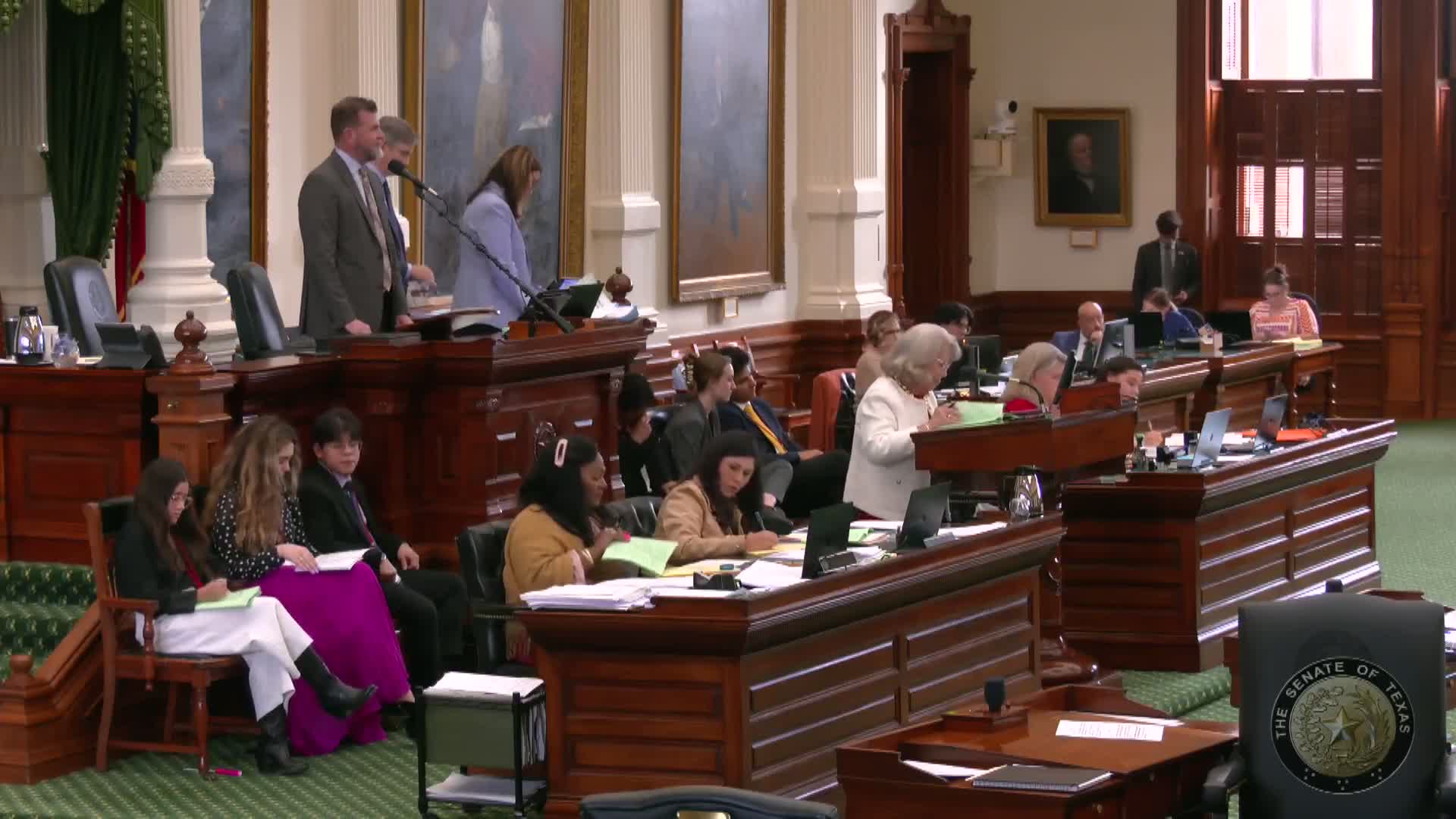
Senate adopts change to ensure 'temporary' FAA hazard area language in spacecraft critical‑infrastructure bill
